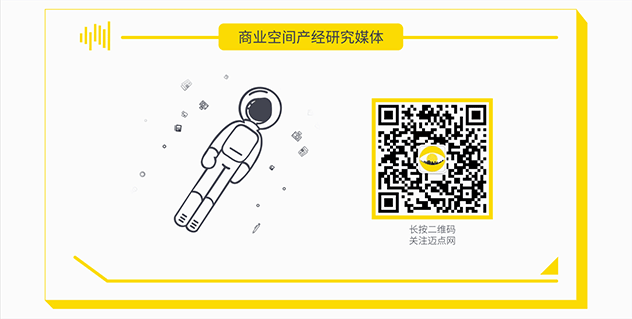
The hotel industry has long been at the forefront of the experience economy, continuously evolving to meet the changing demands of consumers and setting new expectations for people to feel at home away from home.
It is estimated that there are 17.5 million hotel rooms worldwide, and the hospitality industry now faces an unprecedented opportunity to grow by creating smart physical assets that enhance customer experience.
The key to this opportunity is the Internet of Things (IoT), which has become a critical driver of business growth.
In today’s business environment, 94% of organizations implementing IoT solutions have seen a return on their IoT investments. By monitoring and tracking daily assets in real-time, businesses can offer a range of services to customers, from shorter wait times to cleaner, more energy-efficient environments, as well as asset tracking for machines and equipment.
These interconnected solutions can also enhance decision-making capabilities, allowing employees to engage in more valuable tasks.
When it comes to the hospitality industry, IoT connectivity has the potential to address long-standing issues that have plagued the sector. This includes disconnected customer experiences during check-in, uncertainty about asset locations, and the inability to reduce energy costs.
Chapter 1
/
Asset Monitoring Improves CX
When guests check into a hotel, they often need assistance with moving their luggage to their rooms, or they leave their room service trays outside, hoping someone will come to collect them.
However, in many cases, there are no luggage carts near the reception; walk down any floor of the hotel, and you will find leftover burgers and fries lingering in the hallways overnight.
Neither of these options is satisfactory for guests or hotel staff.
What’s the solution? Asset tracking connectivity. When placed on key assets, including indoor and outdoor equipment, these devices allow staff to easily track and manage valuable inventory. Equipment like luggage carts and room service trays can sit in hallways for hours, and they can alert hotel staff to their locations for easy retrieval.
Additionally, dashboard reports and analytics can be used in real-time, not only improving staff efficiency but also allowing them to spend more time connecting with guests during their workday, such as providing personalized recommendations for tourist destinations or checking in on their stay.
According to PwC’s customer experience survey, customers do not want to choose between human interaction or machines: they want automation embedded in their experience while still maintaining the human element—keeping high hospitality while enabling a seamless experience that we expect in a digital world.
Chapter 2
/
Energy Management Saves Money and Protects the Planet
Consumers want to support brands that represent their values, and when it comes to hotels, consumers often prefer to support brands that are significant in environmental and corporate social responsibility (CSR) initiatives, including energy efficiency.
According to a sustainable travel report published by Booking.com, 87% of global travelers say they want to travel sustainably.
IoT solutions can assist CSR initiatives. For example, occupancy sensors can provide hotel staff with critical data and alerts to help them better manage and regulate energy consumption, supporting sustainability initiatives.
Guests often do not adjust the temperature in their rooms and sometimes forget to turn off the TV or lights. IoT solutions can automatically adjust the temperature, turn off lights, and TVs when guests leave their rooms.
Real-time measurement of energy usage is challenging, as many hotels receive utility bills months later, and utility companies do not allow monitoring devices to be installed on their meters.
However, dedicated cameras can read the displays on utility meters and provide instant updates on energy usage, allowing hotels to make necessary changes. Artificial intelligence enables cameras to read various types of meters, so this solution can be applied throughout the hotel.
More importantly, saving energy also saves money. By using IoT solutions, hotels can save up to 25% on utility costs. The “Energy Star” program finds that hotels spend at least 6% of their operating costs on energy, with energy expenditures totaling over $2,000 per room annually. For an industry with many hotel owners who must bear costs, this can represent significant savings.
IoT solutions can also measure air quality in hotels, track maintenance needs for refrigerators and HVAC systems. Predictive maintenance not only saves money but also helps businesses avoid equipment failures. Outside the hotel, IoT sensors can monitor moisture in landscape soil and detect leaks.
These are just a few ways hotel businesses can improve energy management, save costs, and enhance customer experience through the right IoT solutions.
Chapter 3
/
Cheers for VIP Access
IoT solutions, such as biometric tokens that support facial recognition and queue management algorithms, can streamline the check-in process while protecting personal information. Large events hosting multiple guests can adopt IoT solutions to detect suspicious behavior and intruders.
We have deployed these solutions on a large scale—customers have noticed the difference in ease of interaction.
Hospitality enterprises know they need to quickly adapt to emerging technologies, but they also want to ensure that these technologies can be easily integrated into existing infrastructures and comply with all data privacy regulations.
IoT solutions can improve asset utilization through connected room service trays and luggage carts, reduce energy costs for connected buildings on a single property, and create better experiences for guests, thus meeting these needs.
Low-cost, high-value solutions with clear business cases are a great place for enterprises to start their IoT initiatives.
Therefore, from the moment guests and event participants enter the hotel, they are provided with a more powerful, personalized, and secure experience. I think we can all cheer for that.
Author:
Rob Mesirow, Leader of PwC Connected Solutions
Jennie Blumenthal, Partner in PwC’s Hospitality and Travel Practice
(This article was translated from Phocuswire by Maidian Network, originally titled “Why IoT is the ‘smart’ solution for the hospitality industry”, and the images used in this article are also from this source)
END
※This article represents the personal views of the author and does not reflect the position of Maidian Network
